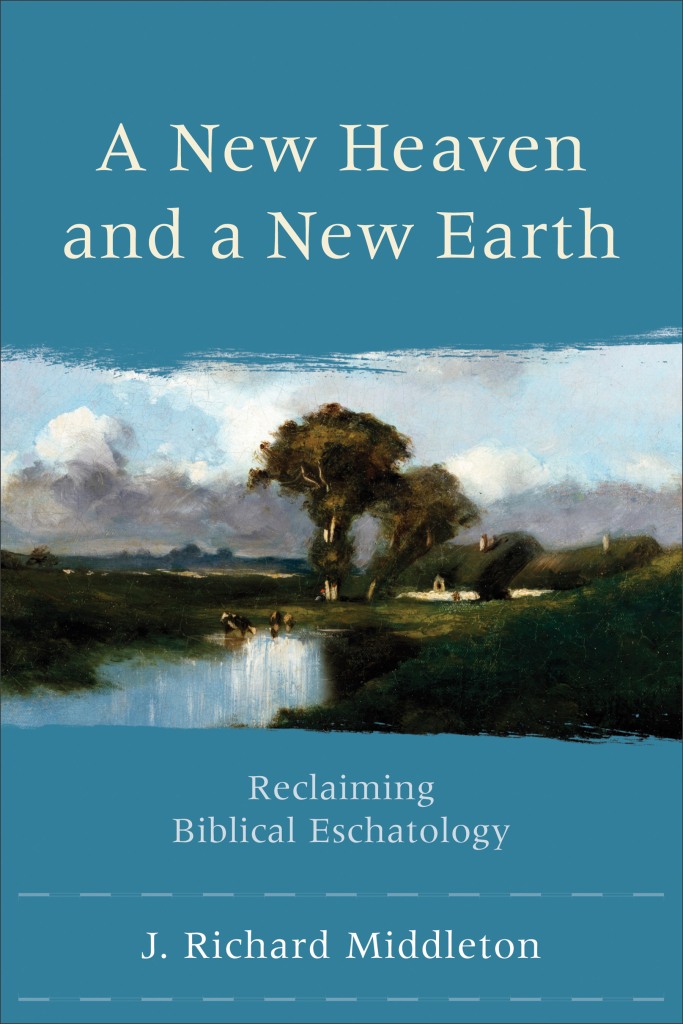Revelation 21 opens with an amazing vision of “a new heaven and a new earth.”
Since the Bible begins with the affirmation that God created the cosmos, consisting precisely of heaven and earth (Genesis 1:1), Revelation 21 proclaims nothing less than a new creation.
But in what sense will this creation be new?
The question is forced upon us because of the end of the verse that proclaims a new creation: “Then I saw a new heaven and a new earth; for the first heaven and the first earth had passed away” (Revelation 21:1).
What does “passed away” mean? Does this imply the obliteration of the original creation and its replacement with something brand new?
Jesus actually said something similar about the passing away of the cosmos in the Olivet discourse.
After instructing his disciples about a series of signs that will precede the coming of the Son of Man, Jesus states: “Heaven and earth will pass away, but my words will not pass away” (Matthew 24:35; also Mark 13:31 and Luke 21:33).
Is this simply a hypothetical statement, to the effect that even if heaven and earth were to pass away, Jesus’s words (his predictions of the coming signs) are sure and trustworthy? Let’s not take the easy way out; let’s assume that he meant what he said.
A surface reading of both Jesus’s words and Revelation 21 suggests that the world as we know it will be gone, to be superseded by a new cosmos. The question is in what sense will the old world “pass away”?
Will God will first destroy creation (heaven and earth) and then create a replacement?
Or is this a reference to some form of transformation that will occur?
The Greek words for “pass away” are slightly different in Revelation 21 and the Olivet discourse. In Revelation 21 it is aperchomai, while in the Olivet discourse it is parerchomai. That’s basically the same verb, but with different prefixes—the prefixes par- and ap-. They don’t indicate any significant difference in meaning.
If we want to really understand what these texts mean by creation passing away, we might turn to Paul’s description of conversion as “new creation” in 2 Corinthians 5:17.
What follows is a literal translation: “If anyone is in Christ—new creation! The old things have passed away; behold, new ones have come!”
Here Paul uses the verb parerchomai (the same verb found in the Olivet discourse) for the ending of the old life, which is then replaced by a new life in Christ.
Are we to think that Paul thinks the passing away of the old life is equivalent to the obliteration of the person, who is then replaced by a doppelganger? Paul’s own writings, not to mention common sense, suggests that no matter how radical the shift required for conversion to Christ, this describes the transformation, not obliteration, of the person.
So, by analogy then, the passing away of the present heaven and earth to make way for the new creation is also transformative. It’s not a matter of destruction followed by replacement.
That’s why God says, “Behold, I am making all things new” (Revelation 21:5)—not “I am making all new things.”
Whether it is the “new creation” of persons who are in Christ or the “new heavens and new earth” promised in Revelation 21, the point is that salvation consists in the rescue and transformation of this amazing world that God so loves (John 3:16).
That’s the consistent emphasis of biblical eschatology.
For more on this topic, see my book A New Heaven and a New Earth: Reclaiming Biblical Eschatology (Baker Academic, 2014), or you can watch my video course on “Biblical Eschatology” at Seminary Now.


Hi, Thanks for sending your thoughts, I’m in the middle of writing a Book about Revelation, I explain the symbols, and touch on the quote you refer to about new heavens and earth. These are my thoughts –
The more you look, the more you can see links between Genesis and Revelation. In Genesis, God creates heavens, earth, sea and everything in them in 6 days. In Revelation He judges and uncreates them with 6 seals, 6 trumpets and 6 bowls of wrath. The old heavens, earth and sea pass away (in symbol)
GENESIS – Creation:
In six days the Lord made the heavens and the earth, the sea, and all that is in them. Ex. 20:11
REVELATION – New Creation:
And I saw a new heaven and a new earth: for the first heaven and the first earth were passed away; and there was no more sea. Rev. 21:1
Revelation is not saying there will be no more literal sea. Sea is a symbol of nations that are not in a covenant relationship with God. It’s meaning that the Kingdom of God will fill the entire earth. There will be no more foreign nations (sea) because all nations will become part of God’s Kingdom.
The first ‘heaven and earth’ will pass away – meaning the political systems of mankind – the rulers in heaven and the people on earth who are subject to them.
An example of this symbol appears in Jeremiah, where God uses emblematic parallelism (a symbol in parallel with its literal meaning) to describe the people of Israel as foolish children making the earth void, and the rulers of Israel as skilled in evil, causing the heavens to hold no light -–
My people are fools;
they have not known Me.
They are foolish children,
without understanding.
They are skilled in doing evil,
but they don’t know how to do good.” I looked at the earth (people of Israel),
and it was formless and void;
I looked to the heavens (leaders of Israel),
and they had no light.
Jeremiah 4:22-23